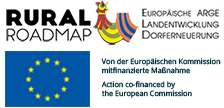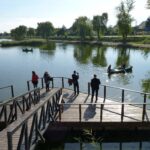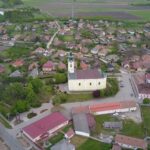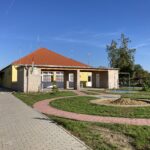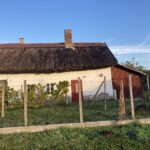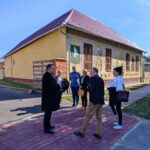Egyek, Hungary
The eastern Hungarian municipality of Egyek has around 5,300 inhabitants and is located in Hajdú-Bihar County. It is conveniently located on one of the important tourist routes and is about 63 kilometers from Debrecen, the second largest city in Hungary. The village is part of the Hortobágy National Park, which – just like the proximity to the Tisza and Lake Tisza – is a decisive factor for the development of the village. Ecological values and environmental awareness as well as the development of infrastructure play an important role in the design and development of the community.
Twelve years ago, despite the extremely difficult social situation and weak infrastructure, it was possible to set in motion a remarkable development process that is supported by a high level of cultural and social awareness. Before 2010, Egyek was still characterized by unemployment, abandoned houses and a lack of infrastructure and security, but this image has changed significantly. This is mainly due to the commitment of the leadership together with the extremely dedicated population. One of the most important steps towards improving the quality of life and infrastructure was the construction of an award-winning animal shelter for stray dogs, implemented in cooperation with two neighboring communities, which significantly increased the feeling of security among the population. The employment of the long-term unemployed by municipality and the founding of new companies as well as the settlement of existing ones can also be described as formative steps, as a result of which numerous new jobs could be created.
The strengthening of the community is guaranteed by diverse municipal support for local associations. There are various programs and measures available to the community, the size of funding depends on the quality and value offered to the public. In the last twelve years, numerous buildings have been restored and made available to the community. During renovations, traditional construction methods such as thatched roofs are taken into account and old traditions of craftsmanship are used. Refurbished buildings are mostly put to new use. In this way, a wealth of infrastructural facilities were created, such as the “Creative House”, a community center, a funeral office, a guest house, a restaurant, the police station, a nursing home, a health center, a kindergarten and a school. In addition, the infrastructure was expanded with new buildings and additions. Central elements that reflect the cultural heritage, such as the Jewish and Christian cemeteries, were also renovated.
The creation of infrastructure was accompanied by a significant improvement in the local range of services. The renovated health center offers the services of a large number of specialists. Mention should also be made of the food service for about 250 people and the provision of domestic help, realized through a partnership with the Baptist Mission. Other important social institutions are the “Center for New Opportunities” and the Center for the Disabled, which was also made possible in cooperation with the Baptist Mission.
Egyek tries to meet the needs of all age groups and therefore also offers cultural, sports and leisure activities as well as training and further education opportunities for young and old. A special focus is the integration of disadvantaged people. For example, the community has established forums for equal opportunities, educational support for disadvantaged children, childcare facilitites and a one-week summer camp for school-age children at Lake Balaton. Measures against climate change are of great importance in the community. In particular, attempts are made to positively influence the microclimate. In this context, the old clay pit in the center of the village was dredged, renovated and a lake was created, which is appreciated by boaters and water bikers as well as fishermen. In addition to enlarging the water surface, the construction of new rainwater and inland water channels and the installation of protective forest strips also contribute to creating a favorable microclimate. In the area of renewable energy, the city government has built bale boilers for reeds and straw and installed solar panels on public buildings. Another important concern of the community is avoiding monocultures in agriculture and to establish a variety of plant cultures to ensure biodiversity on the one hand and secure jobs in agriculture on the other.
Egyek can look back on around 90 implemented projects in the last ten years alone. The conscious use of available resources and the conversion of weaknesses into strengths is remarkable. The significant increase in the quality of local services and the wide range of local employment opportunities speak for themselves. As a result of the development process, the village today not only offers paved roads and paths, a rainwater and inland water canal system, a new sewage treatment plant with a new sewage system and a well-kept, clean townscape, but also a thriving commercial area, 42 rental apartments, and a wealth of sports and leisure facilities and high-quality educational, health, care and social facilities. Those responsible in Egyek clearly show that investments in infrastructure have a positive effect on the village and significantly increase the population’s appreciation of the living space. The consistent path, which is taken with deliberation and prudence, strengthens the identity, creates security and trust and makes the community an attractive place to live.
Evaluated: 2022
